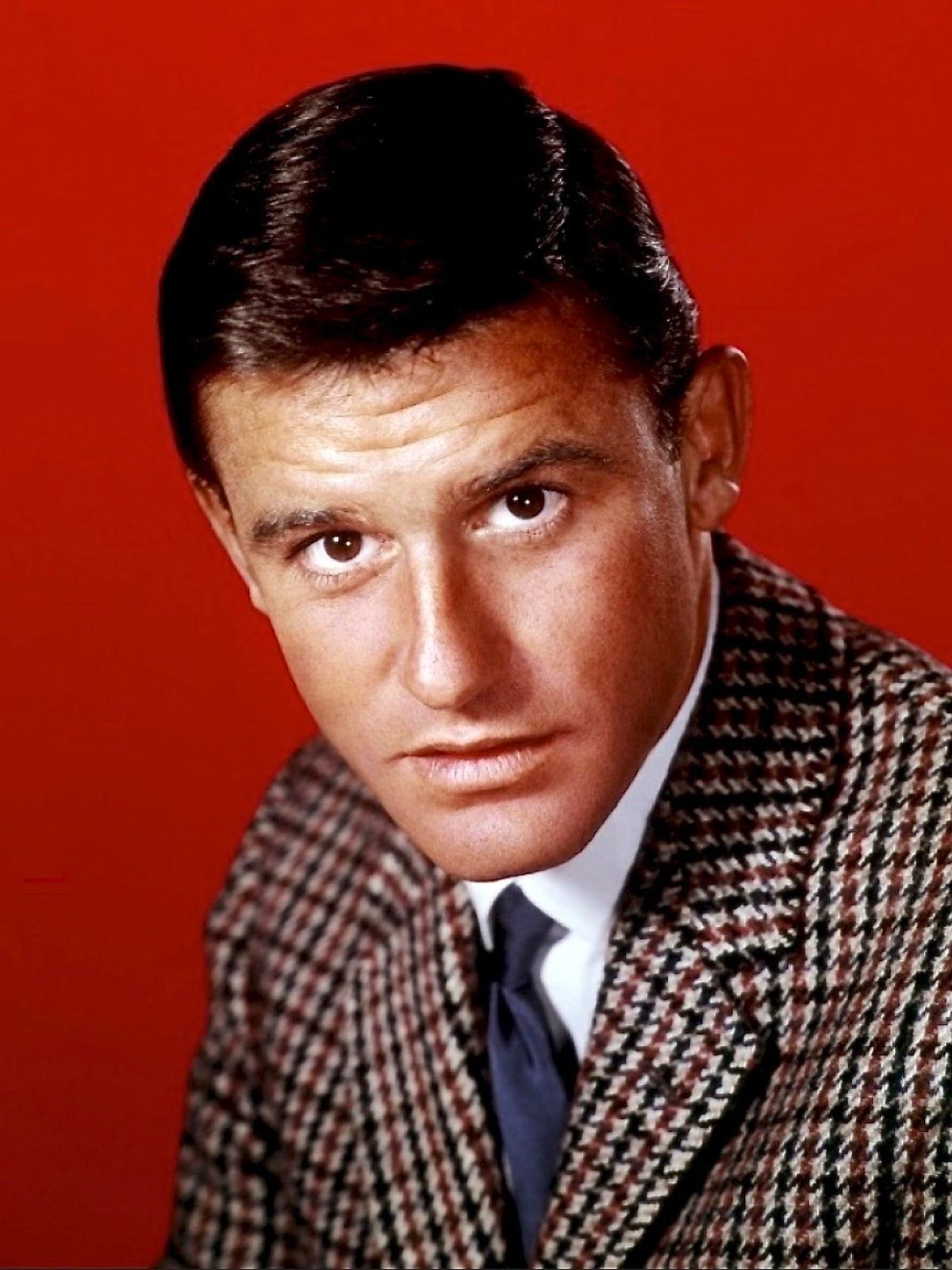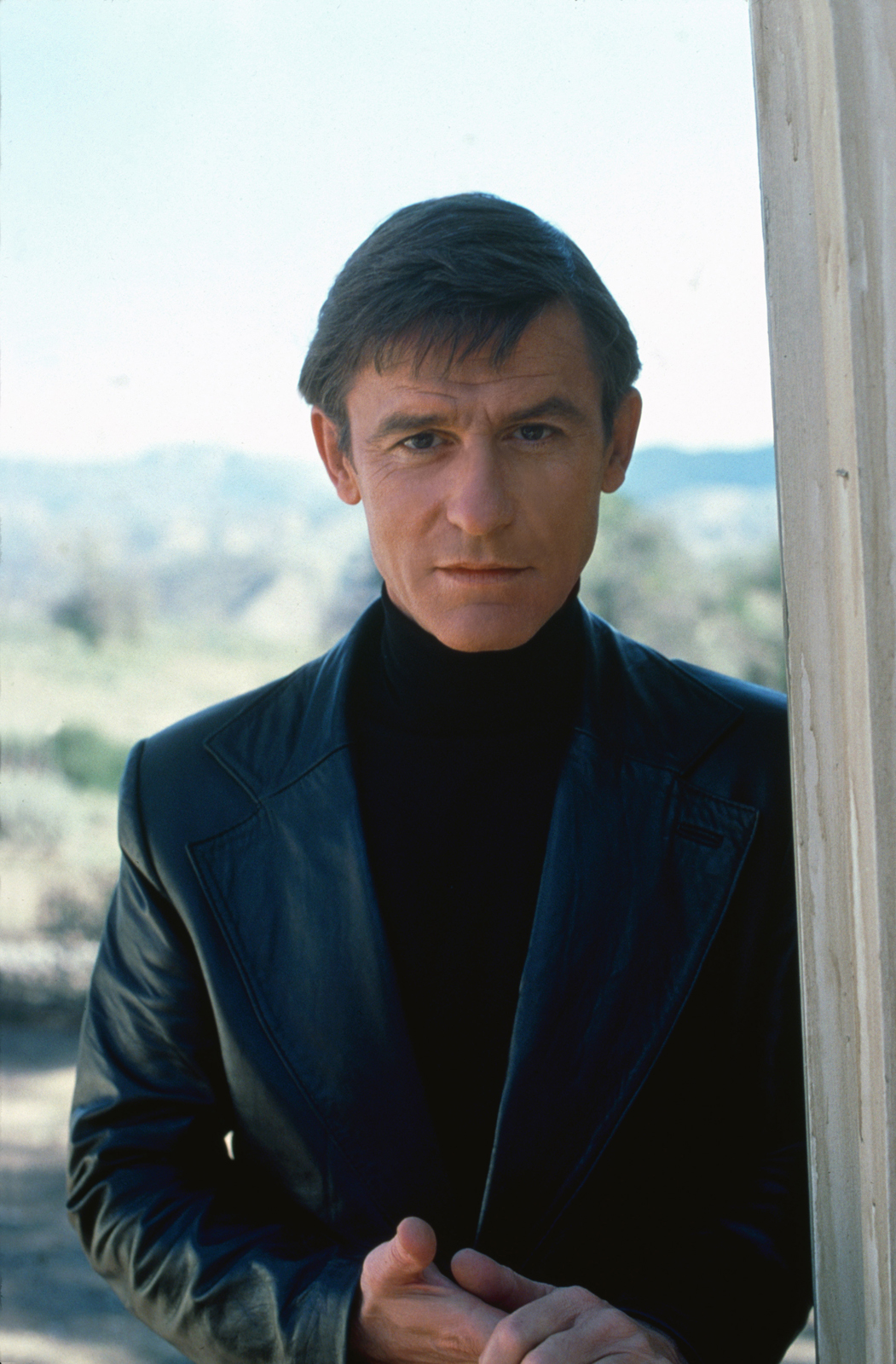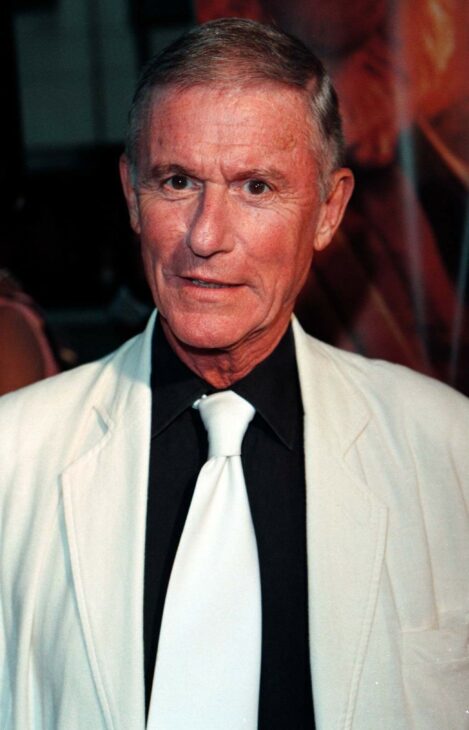Roddy McDowall - A Hollywood Figure Remembered
Roddy McDowall, a name that still sparks interest among those who appreciate the golden eras of cinema, was, in some respects, a truly unique figure in Hollywood. His passing in 1998 marked the end of a remarkable life, one lived with a certain flair and a deep connection to the film world. People often talk about his various contributions to movies and his distinct presence.
Thinking about his life, there are interviews that offer a peek into his experiences, for instance, one that runs about an hour but is split into smaller segments. It's a way, you know, to hear directly from him, offering insights into what it was like during those times. These conversations, even when they are not too long, can provide a good sense of the person and the period.
This piece aims to bring forward some of those qualities and connections that made Roddy McDowall such a noteworthy person. We will look at how he moved through the social structures of the film industry and touch upon some of the screen work that has stayed with audiences over the years, basically, giving a picture of his enduring appeal.
Table of Contents
- Who Was Roddy McDowall?
- Personal Details of Roddy McDowall
- What Made Roddy McDowall So Special in Hollywood?
- Roddy McDowall's Personal Connections and Social Circle
- What Did Roddy McDowall's Home Movies Show?
- Roddy McDowall's Memorable Screen Appearances
- Did You See Roddy McDowall in The Legend of Hell House (1973)?
- Why Is Roddy McDowall's Fright Night (1985) So Enduring?
- Roddy McDowall - A Legacy Beyond the Screen
Who Was Roddy McDowall?
Roddy McDowall, as mentioned, passed away in 1998. His presence in the entertainment world spanned many years, leaving behind a body of work and a reputation for being a true insider. His life, in a way, seems to have been deeply intertwined with the fabric of Hollywood itself. People who knew him or observed his career often speak of his unique standing. He was, to be honest, someone who truly made his mark on the industry.
There are opportunities to learn more about him directly, for example, through recorded conversations. One such interview, which lasts about an hour, is thoughtfully divided into twelve smaller segments. This format allows for a focused look at various aspects of his experiences and thoughts. It's a convenient way to get to know him a little better, especially if you are interested in the history of cinema. These recordings, in fact, provide a valuable window into his world.
This interview, it seems, offers a good general overview of what old Hollywood was like. It provides information that helps one grasp the atmosphere and workings of the film industry during his time. While it might not go into every single personal detail, it still proves quite valuable for gaining a broader sense of the era. It's definitely, you know, a worthwhile watch for anyone curious about that period in film history.
Personal Details of Roddy McDowall
| Detail | Information |
|---|---|
| Year of Passing | 1998 |
| Known For | Acting, Social Connections in Hollywood |
| Notable Traits | English charm, Discretion |
| Social Standing | Knew many significant figures in Hollywood |
| Interview Insights | Provided general old Hollywood information |
| Appearance in Interview | Looked rather attractive |
What Made Roddy McDowall So Special in Hollywood?
Roddy McDowall possessed a distinct kind of allure that set him apart in the entertainment world. He had, you know, a cool, smooth English charm that seemed to come across effortlessly. This wasn't just a surface quality; it appeared to be a deeply ingrained part of his character, making him quite captivating to those around him. This particular charm likely helped him forge and keep many of his important connections within the film industry. It was, in some respects, a defining feature of his public and private persona.
Beyond his appealing manner, Roddy McDowall also had a reputation for knowing how to keep his private thoughts to himself. This discretion was, arguably, a very valuable trait in Hollywood, a place where information can often travel quickly. His ability to maintain confidences meant that people felt comfortable sharing things with him, trusting that their words would not spread. This quality, combined with his charm, probably strengthened his position as a respected and sought-after figure among the industry's significant personalities. It showed, too, a certain wisdom about how to move through such a public yet often private world.
This combination of personal grace and a quiet understanding of boundaries made him, frankly, a unique presence. He wasn't just an actor; he was a person who understood the unspoken rules of a very particular social structure. His demeanor, in a way, allowed him to be both deeply connected and yet, at the same time, a guardian of personal stories. This balance, you know, is something that few people truly master, especially in an environment like Hollywood, where so much is often on display.
Roddy McDowall's Personal Connections and Social Circle
It's quite clear that Roddy McDowall had an extensive network of acquaintances and friends within the Hollywood community. He was someone who, apparently, knew everyone who held importance in the film business. This suggests a reach that went beyond mere professional contact; it speaks to a deeper level of connection and mutual regard. His presence at various gatherings and his personal relationships likely placed him at the heart of many significant social circles. This kind of access, as a matter of fact, is rare and speaks volumes about his standing.
His ability to connect with and maintain relationships with so many influential people meant he was, in a way, a central figure. He wasn't just a participant in the industry; he was someone who understood its inner workings through direct interaction with its key players. This deep familiarity with the people who shaped Hollywood's direction gave him a unique perspective. It also implies, you know, that he was a trusted individual, someone whose company was valued by the industry's elite.
The interview mentioned earlier, while not going into every personal detail, still offers a good sense of his connections. It provides general information about old Hollywood, which, frankly, often comes through the lens of those who lived and breathed it. The fact that he was the source of such insights further underscores his position. He was, therefore, a kind of living archive, holding stories and observations that painted a picture of the industry from the inside. This makes his recollections, you see, especially valuable for anyone interested in that period.
What Did Roddy McDowall's Home Movies Show?
Roddy McDowall's home was, it seems, a gathering place for some of the biggest names in Hollywood. There are, for instance, home movie recordings that capture moments from these private get-togethers. One such film shows Natalie Wood, a well-known figure, enjoying herself in the ocean at Roddy McDowall's seaside home. This particular snippet is interesting because it contradicts a claim that her sister was afraid of the water. It provides a little glimpse into Natalie Wood's personal life, suggesting a comfort with the ocean that might not have been widely known. It's a small detail, but it, you know, offers a personal touch to her public image.
Another home movie from Roddy McDowall's collection features an impressive group of stars simply relaxing at his place. This footage includes Natalie Wood again, alongside Tony Perkins, Tuesday Weld, Jane Fonda, and a collection of other very famous individuals. The sight of these well-known actors just "chilling out" at his home speaks volumes about his role as a social hub. It shows, basically, that his home was a comfortable and welcoming spot where these public figures could unwind away from the constant glare of the cameras. This kind of informal gathering, in fact, was probably quite rare for people of their stature.
These home movies, in a way, offer a rare and honest look into the private lives of these well-known individuals. They are not staged performances but rather candid moments of friendship and relaxation. The fact that Roddy McDowall was the one capturing these scenes suggests his close relationships with these people. It paints a picture of him as someone who was trusted and liked, a person with whom these stars felt comfortable enough to simply be themselves. This collection of informal recordings, you know, adds a unique layer to our understanding of the social side of old Hollywood.
Roddy McDowall's Memorable Screen Appearances
Beyond his social standing and connections, Roddy McDowall was, of course, an actor with a significant career on screen. He appeared in many productions that have remained in the public memory for various reasons. His choices in roles and his performances often brought a distinct quality to the projects he was involved in. It's fair to say that he left a lasting impression on many viewers through his work. He was, after all, a performer who brought characters to life in a way that resonated with audiences, sometimes in unexpected ways.
One such appearance that comes to mind is his role in an episode of *The Twilight Zone* from 1960, titled "People Are Alike All Over." In this particular episode, he shared the screen with Susan Oliver. This science fiction series was known for its thought-provoking stories and often unsettling themes, and his involvement in such a classic program further highlights his range as an actor. It shows, too, his willingness to take on roles that explored different kinds of narratives. This appearance, you know, remains a notable part of his television work and is still talked about by fans of the show.
His filmography includes a variety of genres, from horror to science fiction, showing a versatility that allowed him to move between different types of stories. This adaptability meant he was able to work consistently and appear in projects that captured the public's attention. His performances, in many cases, contributed to the overall impact and lasting appeal of these movies and television shows. It's clear, then, that his screen presence was a key part of his enduring legacy, shaping how people remember him today.
Did You See Roddy McDowall in The Legend of Hell House (1973)?
The 1973 film, *The Legend of Hell House*, is one of Roddy McDowall's more notable screen efforts, particularly within the horror genre. This movie, for some viewers, was quite a distinct experience. It was, in fact, described by one observer as something of a "gay man's wet dream," which is a rather vivid way to put it. This description points to certain qualities within the film that resonated with a particular audience, suggesting elements of style, character, or perhaps even an underlying sensibility that appealed to them. It certainly gives you, you know, a sense of its unique flavor.
The movie featured Roddy McDowall alongside other performers like Gayle Hunnicutt and Pamela Franklin. The presence of these actors, combined with what was described as "gay campy fashion and fun," contributed to the film's particular atmosphere. The mention of "campy fashion" suggests a certain theatricality and a playful, perhaps exaggerated, approach to style within the movie. This kind of aesthetic, you see, can often add a layer of enjoyment and personality to a film, making it stand out from others in its category. It's clear that these elements were part of what made the movie memorable for some viewers.
The idea of "fun" alongside "campy fashion" indicates that the film, despite its horror setting, might have had moments of lightheartedness or a tongue-in-cheek approach. This blend of genres or tones can create a very specific viewing experience, one that is not just about frights but also about a certain kind of entertainment. For those who appreciate this particular mix, *The Legend of Hell House* with Roddy McDowall and its distinct elements, frankly, offered something quite special. It was, arguably, a film that knew how to deliver on its unique promise to its audience.
Why Is Roddy McDowall's Fright Night (1985) So Enduring?
The 1985 vampire movie, *Fright Night*, holds a special place in the hearts of many who grew up in the 1980s. For some, this film was loved from a very early age, even from ten years old, when they were, quite honestly, too young to be watching it. This early connection speaks to the movie's immediate appeal and its ability to capture the imagination of young viewers. It suggests that the film had a certain magic that transcended age appropriateness, drawing people in with its story and characters. It was, you know, one of those movies that just stuck with you.
Several elements contributed to *Fright Night*'s lasting impact. The film was noted for its "homoeroticism," which, in a way, added a layer of complexity and appeal that might have been subtle to some but very clear to others. This aspect, combined with its "special effects," which were likely quite impressive for the time, made it visually engaging. The effects helped bring the vampire story to life in a believable and exciting manner, drawing viewers deeper into its world. It was, in fact, a film that pushed some boundaries for its genre.
Furthermore, the "dialogue" in *Fright Night* was also a key factor in its enduring popularity. Well-written lines and memorable exchanges can make characters and situations feel more real and engaging, allowing the audience to connect with the story on a deeper level. The mention of "sexy Chris" also points to the appeal of its cast members and the way they embodied their roles. All these components—the underlying themes, the visual spectacle, the spoken words, and the appealing performances—came together to create a movie that, frankly, continued to resonate with audiences for years after its release. It's clear that the film, in some respects, hit all the right notes for its fans.
Roddy McDowall - A Legacy Beyond the Screen
Roddy McDowall's influence and presence extended far beyond his acting roles. He was, in a way, a chronicler of Hollywood life, not just a participant. His keen observations and connections allowed him to gather a wealth of knowledge about the industry and its people. This depth of experience made him a valuable source of information and stories for anyone looking to understand the inner workings of the film world during his time. He was, basically, a walking encyclopedia of Hollywood lore, and that's a pretty special thing.
The fact that he maintained such close relationships with so many significant figures, as evidenced by the home movies, underscores his unique position. He wasn't just a colleague to these stars; he was a trusted friend, someone they felt comfortable being themselves around. This personal connection allowed him to witness and document moments that few others ever saw. These glimpses into the private lives of public figures are, you know, incredibly rare and offer a different perspective on their humanity, away from the crafted images presented on screen.
His passing in 1998 certainly marked the end of an era for many who knew him or admired his work. However, his contributions, both as a performer and as a central figure in Hollywood's social fabric, continue to be recognized. The interviews he gave, the films he appeared in, and the personal anecdotes that surface about his life all contribute to a lasting picture of a man who was deeply embedded in the world of cinema. He remains, therefore, a figure of considerable interest, a testament to a life lived fully within the dazzling, yet often complex, sphere of show business.

Roddy McDowall (Creator) - TV Tropes

Bild zu Roddy McDowall - Bild Roddy McDowall - Foto 1 von 8 - FILMSTARTS.de

Roddy McDowall | Who2